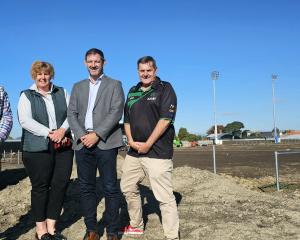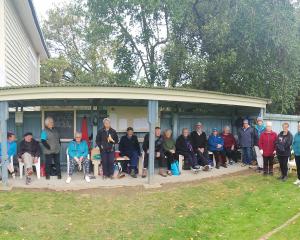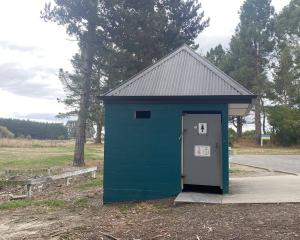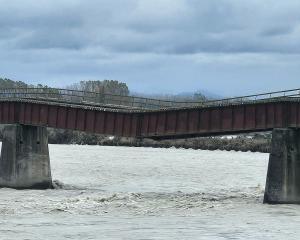What do the candidates in the 2019 local body election stand for? The Otago Daily Times gave nominees for Environment Canterbury the opportunity to answer the following questions:
1 How can the battle against wallabies establishing themselves in Otago be controlled and won?
2 What are your goals and what should the priorities be for your council?
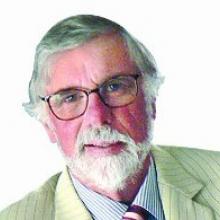 Peter McIlraith
PETER MCILRAITH
Peter McIlraith
PETER MCILRAITH

Constituency: South Canterbury.
Age: 67.
Occupation: Self-employed retired hill county farmer.
Question 1: This is a good question for me as I have spent a lifetime successfully managing wallabies on an endemic property. In my experience of hill country, North Otago and particularly the Kakanui Range would make an inviting habitat for this pest. It is my opinion that the sightings currently observed are most likely from human spread. When female wallabies are being pursued by hunters, they will cast aside the joey in their pouch as a form of survival. It is tempting for these immature creatures to be taken home as pets. Sadly, they inevitably are released or break out into the wild. This is serious stuff. I cannot stress enough, as one who has had the task of management, to say ‘‘prevention is better than cure’’.
Question 2: Less bureaucratic rules and regulation and more co-operation with local stakeholders. I subscribe to the notion of governance for the people by the people and know regional councils should be there to serve the constituents, not control their lives and liberties.
Each new rule and regulation is a loss of someone’s liberty.
My goal is to change the culture to one of a service provider without inflated rate demands.
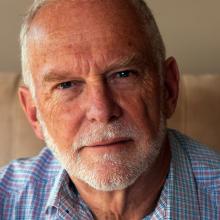 Dr Phil Driver
DR PHIL DRIVER
Dr Phil Driver
DR PHIL DRIVER

Constituency: South Canterbury.
Age: 67.
Occupation: Company director.
Question 1: Step 1: Agree it’s in everyone’s interest to eliminate wallabies to stop them consuming crops and making it difficult to establish essential environmental plantings. Step 2: Engage land owners to design strategies for systematically eliminating wallabies. Step 3: Do it using every means possible in a blitz and that includes (unfortunately) poison (after removing stock), shooting and new technologies based on sensor cameras and artificial intelligence.
Question 2: Climate change mitigation and adaption must guide everyECan policy, alongside protecting and restoring drinking water sources and restoring the ecological health of all our rivers, lakes, wetlands and groundwater. Most of these actions require extensive involvement from everyone who uses water, land, air and energy so ECan must work closely in partnership with all stakeholders.
 Jared Ross
JARED ROSS
Jared Ross
JARED ROSS

Constituency: South Canterbury Otuhituhi.
Age: 36.
Occupation: Farmer, self-employed landowner.
Question 1: A co-ordinated approach is needed between adjacent regional councils for pest control. The source/location(s) of spread must be clearly identified and prioritised. Within ECan command there is the opportunity to intensify thresholds for control requirements, further suppressing the source population. The control measures can be more precise and cost-efficient and therefore allow for greater net control to be achieved. It is prudentto provide cost-benefit education to encourage proactive controls.
Question 2: My primary objective for the council is improvement of the strained working relationships that exist with both territorial authorities and constituents. There is understandable concern over rate increases reaching double figures. I believe there is opportunity for the ratepayers’ benefit to achieve cost efficiencies here. Our political governance is currently very aspirational which has the perhaps unintended consequence of being expensive. Cleaner dissemination between district and regional authority will also give positive effect to the above.
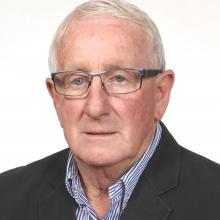 Peter Scott
PETER SCOTT
Peter Scott
PETER SCOTT

Constituency: South Canterbury.
Age: 64.
Occupation: Mixed crop farmer, deputy chairman ECan.
Question 1: The control and eradication of wallabies on the south side of the Waitaki River is a priority for the Southern Regions Biosecurity and Biodiversity Committee. Numbers are not large but there are wallabies present in the area. The effort needed to rid the area of the last of the wallabies requires alot of money and effort. The most effective control will be people and dogs for the last of them.
Question 2: Ensure that our land and water plans in the area are working as intended. Support the Upper and Lower Waitaki Zone Committees as they define and solve local issues. Working with the Waitaki District Council to ensure our plans align.
The southern area that ECan has responsibility is in good condition. We have good community support for the environmental health of the river and lakes. The communities are committed and vigilant.
 Elizabeth McKenzie
ELIZABETH MCKENZIE
Elizabeth McKenzie
ELIZABETH MCKENZIE

Constituency: South Canterbury.
Age: 46.
Occupation: Scientist.
Question 1: Current control measures for wallabies in South Canterbury are ineffective. However, wallabies were controlled effectively prior to 1992 via significant government funding.
ECan should:
1. Approach MFE/MPI/Doc to increase funding for shootingand poisoning
2. Consider the impact of pest control decisions on adjacent regions and work co-operatively with ORC
3. Lobby MFE/MPI to fast-track the Cacophony Project, which uses thermal imaging, artificial intelligence, and sound lures on drones with poison ‘‘paint-guns’’ for pest control.
Question 2: My priorities are to:
1. Develop a climate change emergency adaptation plan to protect our communities
2. Restore diverse habitats and protect biodiversity to safeguard our food ecosystems
3. Protect our rights to clean air, safe clean drinking water and swimmable rivers
4. Support green transportation initiatives and reductions in greenhouse gas emissions
5. Support farmers transitioning to regenerative agriculture
6. Support diversification in land use to build resilience in our food systems and economy.
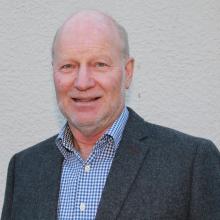 Herstall Ulrich
HERSTALL ULRICH
Herstall Ulrich
HERSTALL ULRICH

Constituency: South Canterbury/ Otuhituhi.
Age: 64.
Occupation: Farmer and company/ co-operative director.
Question 1: A very vexed problem. They are spreading everywhere, including onto our farm, so I know only too well what a pest they are. The current situation is a mess, with no real plan assuch. ECan is setting up biosecurity groups involving grassroots people to hopefully come up with answers and plans for this pest and others. I will encourage ECan to act on their advice, with their experience of this pest.
Question 2: To make sure the four pillars of the RMA —Environmental, Economic, Cultural, Social — are given equal weight in the current environmental debate. Policies to be based on good, robust science and facts. Increase environmental monitoring to actually measure changes in water quality, to inform future policy. To promote alternative modes of transport to reduce greenhouse gas emissions. Making sure the council is fiscally responsible, so that rates are sustainable and affordable.


